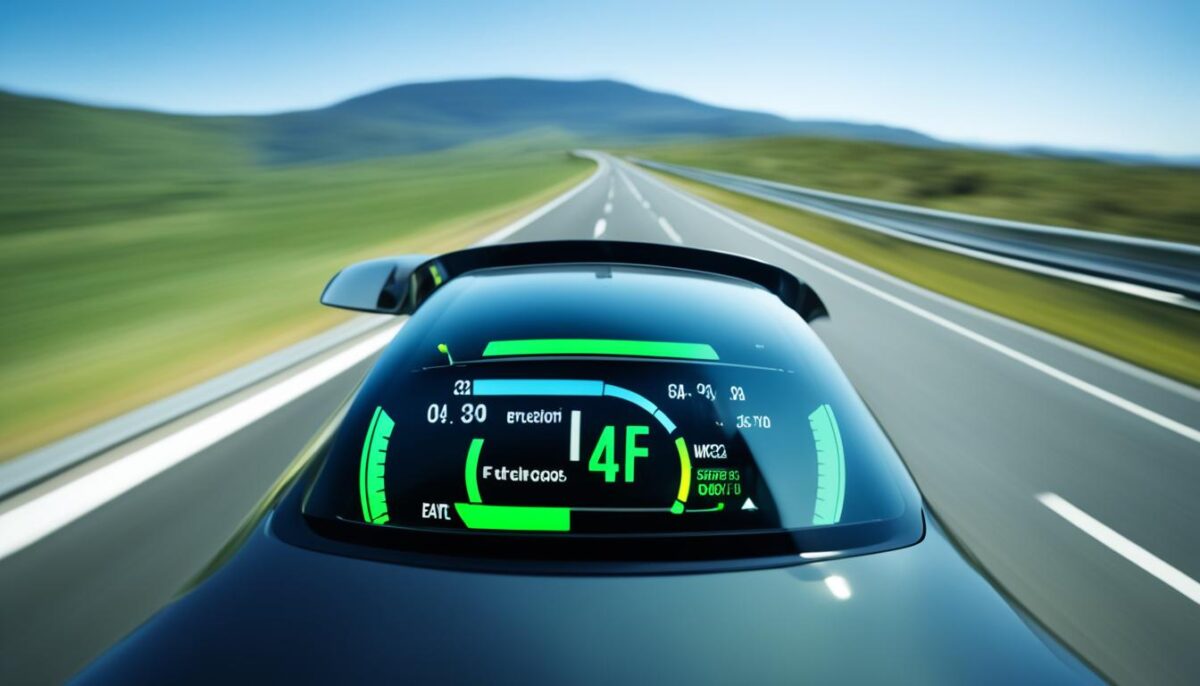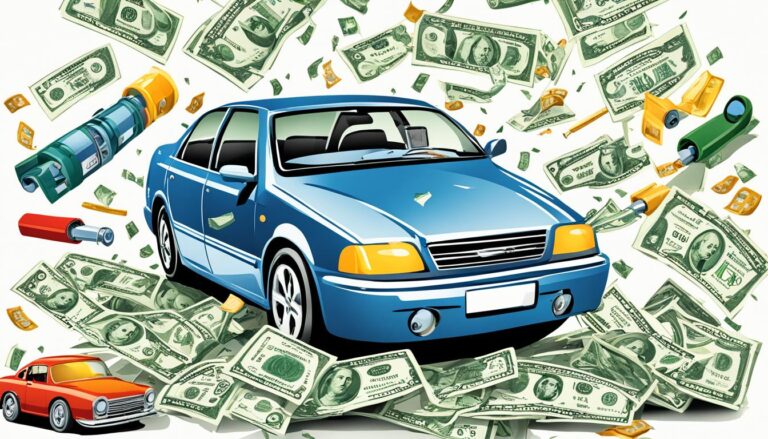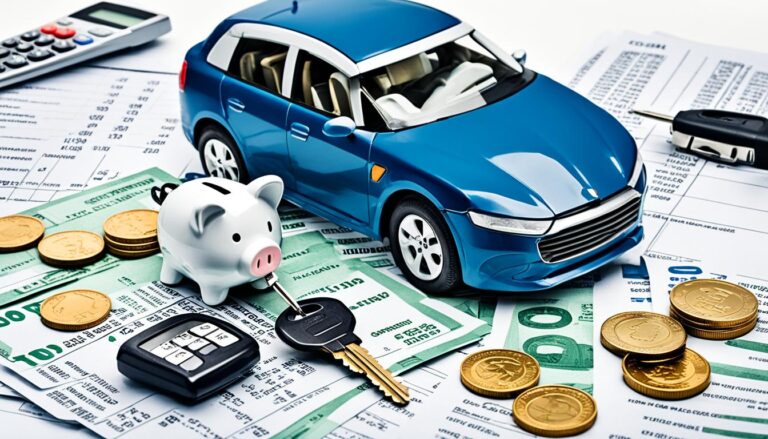When purchasing a vehicle, it’s crucial to consider more than just the sticker price. The true auto cost and overall vehicle cost go far beyond the initial total cost of ownership. In this article, we’ll explore the various expenses and hidden car expenses you should factor in when budgeting for your next car buying.
From upfront costs like taxes and fees to ongoing expenses like insurance and fuel, understanding the comprehensive auto cost will help you make a well-informed decision and avoid unexpected financial surprises down the road. By considering all the relevant vehicle cost factors, you can develop a realistic budget and ensure you’re getting the best value for your money.
Upfront Costs: Budgeting for the Initial Investment
When it comes to purchasing a vehicle, the sticker price is just the starting point. Savvy car buyers know that effective negotiation tactics can lead to significant savings on the sticker price. From understanding the trade-in value of your current car to strategizing the perfect down payment, there are several ways to secure a favorable car financing deal.
Sticker Price and Negotiation Tactics
The sticker price is the manufacturer’s suggested retail price, but it’s rarely the final price you’ll pay. Negotiating the price is an art form, and with the right approach, you can drive away with a much better deal. Research the market value of the vehicle, compare prices at multiple dealerships, and be prepared to walk away if the offer doesn’t meet your expectations. Leveraging your trade-in value can also give you a stronger negotiating position.
Registration, Taxes, and Fees
In addition to the sticker price, you’ll need to budget for various vehicle registration, sales tax, and other title fees. These can add hundreds or even thousands to the initial cost, so it’s crucial to understand all the potential hidden car fees before signing on the dotted line. Carefully review the paperwork to ensure you’re only paying what’s legally required.
| Upfront Cost | Average Range |
|---|---|
| Sticker Price | $20,000 – $40,000 |
| Down Payment | $2,000 – $8,000 |
| Vehicle Registration | $100 – $500 |
| Sales Tax | $1,000 – $3,000 |
| Title Fees | $50 – $200 |

“Negotiating the price of a car can save you thousands of dollars, but it takes preparation and persistence.”
Auto Cost Vehicle: The Hidden Costs of Ownership
When purchasing a new vehicle, the sticker price is just the tip of the iceberg. There are several hidden costs of auto ownership that can significantly impact your overall budget. Two of the most significant ongoing expenses are auto insurance premiums and fuel costs.
Insurance Premiums and Deductibles
Auto insurance is a mandatory expense for vehicle owners, and the cost can vary widely depending on various factors. Your driving record, the type of car you drive, and the level of coverage you choose can all affect your insurance premiums and deductibles. Drivers with clean records and low-risk vehicles typically pay lower rates, while those with accidents, tickets, or high-performance cars may face higher costs.
To save on auto insurance, consider raising your deductible, which is the amount you pay out-of-pocket before your coverage kicks in. While this increases your financial responsibility in the event of a claim, it can also lower your monthly premiums. Additionally, shopping around and comparing quotes from multiple insurers can help you find the best rates.
Fuel Costs and Efficiency
Fuel costs can be a significant drain on your vehicle ownership budget, especially as gas prices fluctuate. To estimate your fuel expenses, consider the vehicle’s miles per gallon (MPG) rating and your average driving distance. Vehicles with higher fuel efficiency, such as hybrid or electric models, can significantly reduce your gasoline costs.
When evaluating potential cars, pay close attention to the fuel economy ratings. Look for models that offer the best combination of power, performance, and fuel efficiency to keep your long-term costs in check. Driving habits, such as smooth acceleration and adherence to the speed limit, can also impact your real-world fuel efficiency.
| Vehicle Type | Average MPG | Annual Fuel Cost* |
|---|---|---|
| Compact Car | 30 MPG | $1,500 |
| Midsize SUV | 25 MPG | $1,800 |
| Pickup Truck | 20 MPG | $2,200 |
*Assumes 12,000 miles driven per year and $3.50 per gallon of gasoline.

“When it comes to vehicle ownership, the hidden costs can quickly add up. Understanding and budgeting for insurance premiums and fuel expenses is essential to making an informed decision.”
Long-Term Maintenance and Repair Expenses
As a responsible vehicle owner, we understand the importance of budgeting for long-term maintenance and potential repair costs. Regular car maintenance, such as oil changes, tire rotations, and brake inspections, are essential to keeping your vehicle running smoothly and safely. Investing in an extended warranty can also provide peace of mind, covering unexpected repairs and protecting your investment over the long haul.
Preventative maintenance is key to avoiding costly repairs down the line. By staying proactive with routine checkups and addressing minor issues before they escalate, we can help extend the lifespan of our cars and minimize the financial burden of major fixes. Additionally, understanding the value of an extended warranty and how it can safeguard our investment is crucial when considering the total cost of vehicle ownership.
Ultimately, by planning for long-term maintenance and repair expenses, we can make informed decisions and maximize the value of our automotive investment. Whether it’s budgeting for regular tune-ups or exploring extended warranty options, we’re committed to helping you navigate the financial realities of car ownership and keep your vehicle running strong for years to come.



